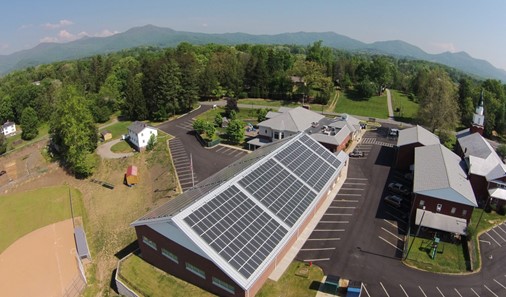
By: Dr. Paul Raybon
My church, Hominy Baptist in Candler, North Carolina, is over 200 years old. We are a small-medium sized congregation, which in the post COVID world means about 150 folks participating in worship and/or ministry on a regular basis, and about half that number in worship on any given Sunday. Many churches are faced with smaller congregations and huge buildings that go unused.
But here, during any given week, 150 children are in childcare and after-school, 18 adults are in an adult day program, 20 meals are being delivered throughout the community, 20 musicians are rehearsing in a community dulcimer group, 20 adults are in exercise classes, 10 senior adults are playing pickleball, 25 young men are at Open Gym, 20 Scouts meet weekly, dozens of young athletes are practicing basketball or softball. This is nothing new. Ten years ago, when we built our family life center, the contractor had difficulty scheduling major construction elements because, as he said, “there are people here all day every day!” That’s still today, but why? What are some key elements and benefits of seeing your church building as a gift and an asset to your community?
Stewardship Not Ownership
Hominy’s core values include “Generosity”. “All that we have comes from God. We respond to needs by freely sharing from our finances, time and energy in response to God’s generosity with us” This has been the way of this congregation for at least the last 100 years. There are many stories of church doors opened to meet community needs. Members genuinely see the facilities as a gift from God, given in order for us to share with others, and not a treasured heirloom to be preserved for our sole use.
Start With “Yes”
Sometimes when we receive a call from an agency or group that needs space, their first reaction is shock that we would even be open to the idea. The local dulcimer group heard 15 “no’s” from churches before they got to us. Unless there is an unchangeable calendar conflict or a clear conflict of interest, our first answer is always “yes, let’s see if we can make this work.”
Realistic Expectations
Most of the people who come through the building during the week will never appear in a Sunday worship service. Eliminate that expectation. The goal is not their membership in church but our engagement in the community.
Another unrealistic expectation is that every space will always be left as it was found, with no trash, damage or normal wear and tear. Our previous pastor said he hoped any new space would never again look like it did on the day of dedication, but instead look like it had been worn in ministry.
Nimble Administration
If we are going to interact with the real world it can’t take two monthly business meetings to make a decision. Staff or volunteers who interact with community groups need to have clear but wide parameters in scheduling. The days of a wall calendar, where anyone can reserve a room, or counting on using a room without calendaring, have to go by the wayside. An electronic calendar with easy viewing access and limited scheduling privileges is the only way.
Clear Understandings
Both established policies and negotiated conditions of specific written contracts or “memorandums of understanding” help reduce conflict and provide clear paths to remedy problems if possible, or amicably ending the relationship if not. No one likes to deal with unmet hidden expectations. Everyone likes to know their needs have been clearly stated.
Several things can happen when we see and use our facilities as a ministry asset to be shared with our community. People in the community see the church as a welcoming place where needs are being met, and people who value that kind of church will seek you out as a place to belong.
People in the community see the church as an organization that invests in the community rather than just its own interests, and people who value that kind of organization will invest their time, energy and money in building and maintaining social and physical infrastructure that makes a difference.
People in the community see the church as a partner and friend with common goals, and people who value that kind of relationship will include the church in future endeavors that expand the impact of the church even further into the community.
When we see our facilities as gifts from God to be shared, God finds a way to grace the gift, the givers, and the recipients with the capacity to give and love more. That’s a gift that keeps giving eternally!
This article was developed from a workshop presented by Paul Raybon and Brad Boberg at the CBF 2023 Annual Gathering. Rev. Dr. Raybon, our partner in ministry in the Western Carolinas, is Co-Pastor of Hominy Baptist Church near Asheville, NC and works with churches and leaders as a coach and consultant in communication, visioning, administration, and spiritual formation. Contact him for more information about how he can help you.
